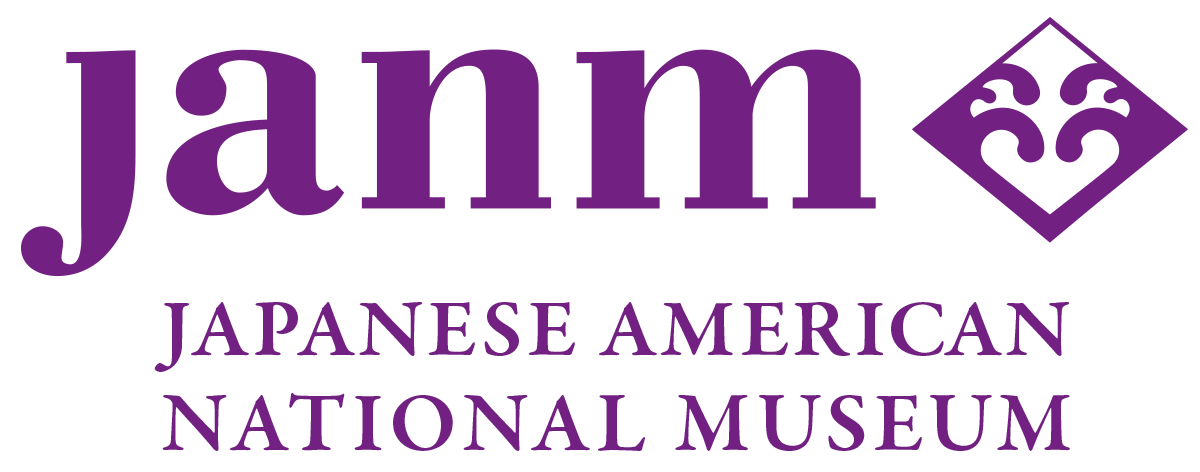FOR IMMEDIATE RELEASE - February 24, 2022
PRESS CONTACTS:
Joseph Duong - jduong@janm.org - 213.830.5690

Japanese American National Museum to Open New Exhibition “Sutra and Bible: Faith and the Japanese American World War II Incarceration” on February 26
LOS ANGELES – From the confines of concentration camps and locales under martial law to the battlegrounds of Europe, Japanese Americans drew on their faith to survive forced removal, indefinite incarceration, unjust deportation, family separation, and war combat at a time when their race and religion were seen as threats to national security.
Sutra and Bible: Faith and the Japanese American World War II Incarceration is a new exhibition co-presented by the Japanese American National Museum (JANM) and the USC Shinso Ito Center for Japanese Religions and Culture with support from the U.S. Department of the Interior, National Park Service, Japanese American Confinement Sites Grant Program.
Co-curated by Duncan Ryuken Williams and Emily Anderson, Sutra and Bible will be on view at JANM from Saturday, February 26 to Sunday, November 27, 2022 with the social media hashtag #SutraAndBible. This new exhibition shares the many ways Buddhist and Christian communities provided refuge, instilled hope, and taught compassion as Japanese Americans survived behind barbed wire, under martial law, and on the battlefield. It explores the role religion played in saving the exiled Japanese American community from despair. It tells the stories of those faced with sudden, heartbreaking exile through an array of astonishing artifacts: from the prayer books and religious scrolls they carried into camp, to the Buddha statues, crosses, and altars they handcrafted to keep their spirits alive. At the heart of the exhibition are sacred scriptures created in camp: ink-inscribed stones unearthed from the Heart Mountain concentration camp’s cemetery that make up a section of the Lotus Sutra, and heavily annotated bilingual Bibles, handwritten by the Salvation Army’s Captain Masuo Kitaji during his incarceration in the Poston concentration camp.
The companion book of the same name, Sutra and Bible: Faith and the Japanese American World War II Incarceration, is a co-publication of JANM, Kaya Press, the USC Shinso Ito Center for Japanese Religions and Culture. Co-edited by Duncan Ryuken Williams and Emily Anderson, this full-color companion book weaves visual storytelling with essays from over thirty prominent voices across academic, arts, spiritual, and social justice communities to illuminate Japanese American spiritual adaptation and resilience during wartime, as well as movements toward solidarity and reparations in the aftermath of state-sanctioned racial-religious animus.
Together, the exhibition and companion book explore the role that religious teachings, practices, and communities played in the World War II Japanese American experience.
Duncan Ryuken Williams is Professor of American Studies & Ethnicity, Chair of the USC School of Religion, and the Director of the USC Shinso Ito Center for Japanese Religions and Culture. He has also been ordained since 1993 as a Buddhist priest in the Soto Zen tradition and previously served as the Buddhist chaplain at Harvard University, where he earned his PhD. Williams’ latest book, American Sutra: A Story of Faith and Freedom in the Second World War (Harvard University Press, 2019) is the winner of the 2022 Grawemeyer Religion Award and a LA Times bestseller. Williams is also the author of The Other Side of Zen (Princeton) and editor of seven volumes including Hapa Japan (Kaya), Issei Buddhism in the Americas (Illinois), American Buddhism (Routledge), and Buddhism and Ecology (Harvard). Find him online at duncanryukenwilliams.com.
Emily Anderson is Project Curator at the Japanese American National Museum and a specialist on modern Japan. Having received her PhD in modern Japanese history from UCLA in 2010, she was assistant professor of Japanese history at Washington State University (Pullman, Washington) from 2010-2014, and postdoctoral fellow at University of Auckland in 2014. She is the author of Christianity in Modern Japan: Empire for God (Bloomsbury, 2014) and the editor of Belief and Practice in Imperial Japan and Colonial Korea (Palgrave MacMillan, 2017) as well as a number of articles and book chapters on religion and imperialism in Japan and the Pacific. She also has extensive experience developing museum exhibits, including co-curating Boyle Heights: Power of Place (JANM, 2002-2003) and Cannibals: Myth and Reality (San Diego Museum of Us, 2015-ongoing).
The Rafu Shimpo is the media sponsor.
###
About the Japanese American National Museum (JANM)
Established in 1985, JANM promotes understanding and appreciation of America’s ethnic and cultural diversity by sharing the Japanese American experience. Located in the historic Little Tokyo district of downtown Los Angeles, JANM is a hybrid institution that straddles traditional museum categories and strives to provide a voice for Japanese Americans as well as a forum that enables all people to explore their own heritage and culture. Since opening to the public in 1992, JANM has presented over 70 exhibitions onsite while traveling 17 exhibits to venues such as the Smithsonian Institution and the Ellis Island Museum in the United States, and to several leading cultural museums in Japan and South America. For more information, visit janm.org or follow us on social media @jamuseum.
About the USC Shinso Ito Center for Japanese Religions and Culture
The USC Shinso Ito Center for Japanese Religions and Culture promotes the study of Japan at USC by hosting visiting scholars, offering postdoctoral fellowships, and supporting faculty-led research and publications, public conferences and events, and graduate students. Established at USC with support from the Japan Foundation in 2011, the Ito Center was renamed in honor of the Shinnyo-en Buddhist organization’s current leader, Her Holiness Shinso Ito, when the organization made a major gift to the Center in 2014.The Ito Center is under the academic auspices of the USC Dana and David Dornsife College of Letters, Arts and Sciences. For more information, visit https://dornsife.usc.edu/cjrc/ or follow us on social media at @USCcjrc.
